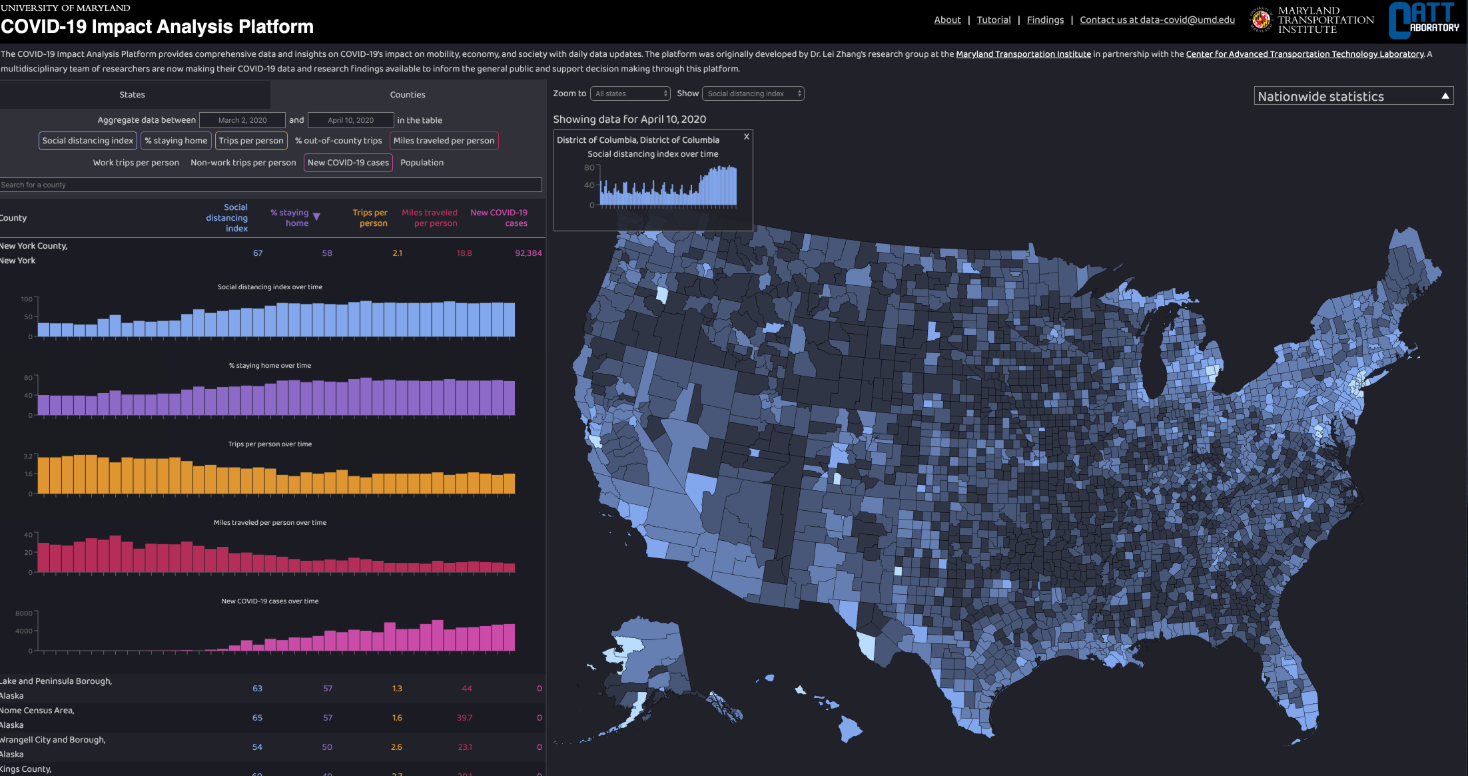USM institutions are applying world-class expertise in computer science, data science, and information technology to develop leading-edge tools to monitor and analyze the impact of COVID-19.
University of Maryland Institute for Advanced Computer Studies
University of Maryland, College Park

University of Maryland Institute for Advanced Computer Studies
University of Maryland, College Park

Department of Information Systems (UMBC) & School of Medicine (UMB)
University of Maryland, Baltimore County
University of Maryland, Baltimore


Geometric Algorithms for Modeling, Motion, and Animation Research Group
University of Maryland, College Park

Department of Biology
University of Maryland, College Park

University of Maryland, College Park
University of Maryland, College Park

Robert H. Smith School of Business
University of Maryland, College Park

University of Maryland Institute for Advanced Computer Studies
University of Maryland, College Park

University of Maryland Institute for Advanced Computer Studies
University of Maryland, College Park

Maryland Blended Reality Center
University of Maryland, College Park

Eastern Shore Regional GIS Cooperative
Salisbury University

University of Maryland Institute for Advanced Computer Studies
University of Maryland, College Park

Department of Mechanical Engineering, A. James Clark School of Engineering
University of Maryland, College Park

Joint Program in Survey Methodology, College of Behavioral and Social Science
University of Maryland, College Park

Maryland Transportation Institute & Center for Advanced Transportation Technology Lab, A. James Clark School of Engineering
University of Maryland, College Park

USM Experts and Institutions
CONNECT & COLLABORATE
USM experts seek opportunities to collaborate on solutions to the COVID-19 crisis.
Now more than ever, partnership is critical.
To make a connection, use the contact form or email
covidsolutions@usmd.edu.
